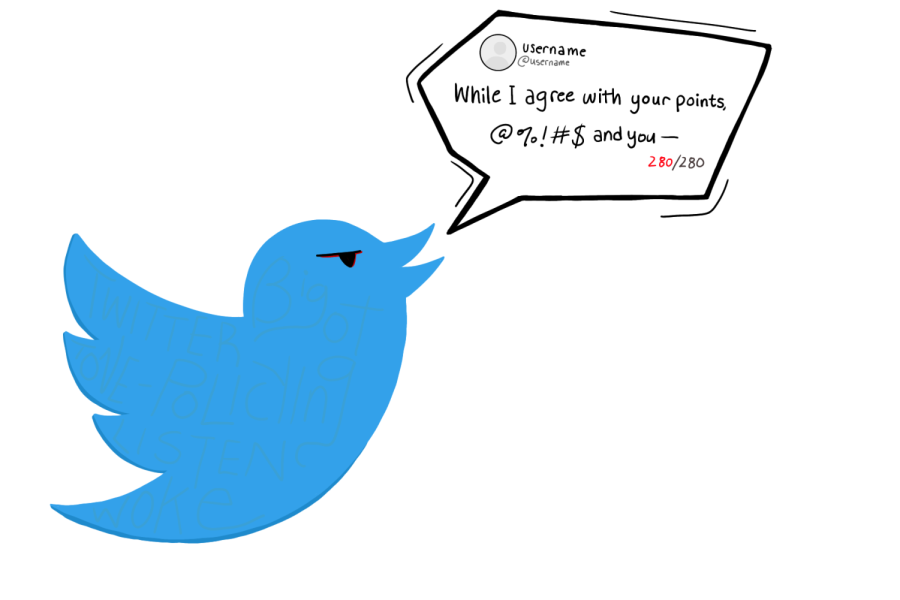Social Media Inhibits the Ability to Respectfully Disagree
January 24, 2023
It is difficult to explain yourself in 280 characters, yet that is all that Twitter allows. To compensate for this, everyone from overzealous fourteen-year-olds to United States Senators seem to have completely abandoned the art of respectful debate, resorting instead to meaningless comebacks and snide remarks. And now, these comebacks and remarks are not only being tolerated, but defended.
In recent years, there has been a conflation between righteous anger and plain pettiness. This idea is captured by the term “tone-policing”. As defined by Ijeoma Oluo, the author of So You Want to Talk About Race, tone-policing is “when someone (usually a privileged person) in a conversation about oppression shifts the conversation from the oppression being discussed to the way it is being discussed.” Essentially, it is when Person A discredits Person’s B’s point because Person B is hurt or angry—for example, someone saying you embarrassed them when you called them out for being racist in front of their friends, or a man asking you if it’s ‘your time of the month’ because you got mad at him for his sexist joke. At its roots, “tone-policing” is meant to call out people who use their power to belittle someone or shift blame in a conversation. However, it is now most commonly used to defend anyone who is disrespectful, especially if they have beliefs that are progressive or “woke”.
Additionally, the way we interact on the internet inevitably alters our real-life conversations. In the aftermath of a pandemic that limited our face-to-face interactions, many of us turned to social media as a way to connect from the comfort of our own homes. With apps like Twitter, TikTok, Instagram, and even Reddit becoming many people’s primary mode of communication, the art of respectful debates has been lost, slowly replaced with a constant need to prove personal or moral superiority. And, of course, if someone calls you out for your unneeded cruelty, they are just “tone-policing”, and therefore must be a bigot themselves.
Now, when someone makes an ignorant and hurtful comment, it is all too easy to reply with something equally as bad. Believe me, I’ve done it before. However, we cannot expect people to lose their ignorance if we crucify them for every mistake that they make. We forget that we will not always be safe behind the glow of our laptop screens, and we need to learn how to converse on difficult issues with real people in real life, which means taking the time to listen before we speak. Even outside of the internet, we see politicians and statesmen calling each other names like they’re on the playground. And though it can be entertaining to watch, attacking people who we disagree with will only help to increase a growing political divide, and halt any progress that could be made. I am not telling you not to be angry, or even not to never cuss someone out when they badly need to hear it. I just caution readers to try to listen first, because I promise you’re not the only one with something to say.










